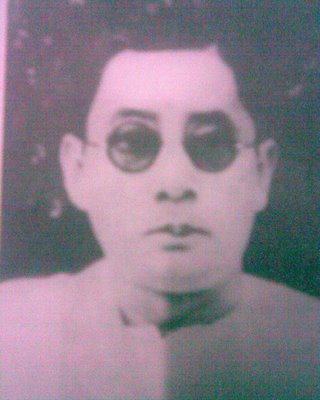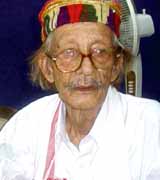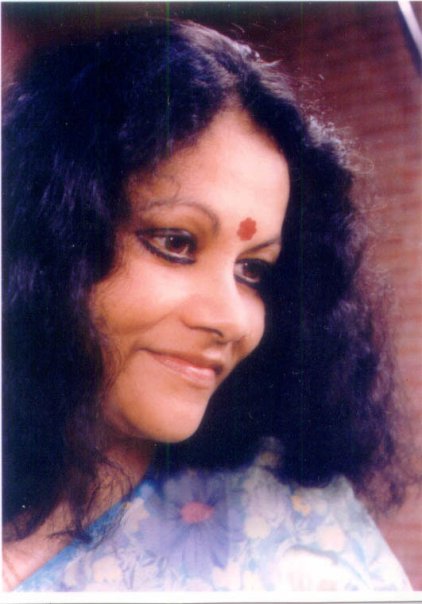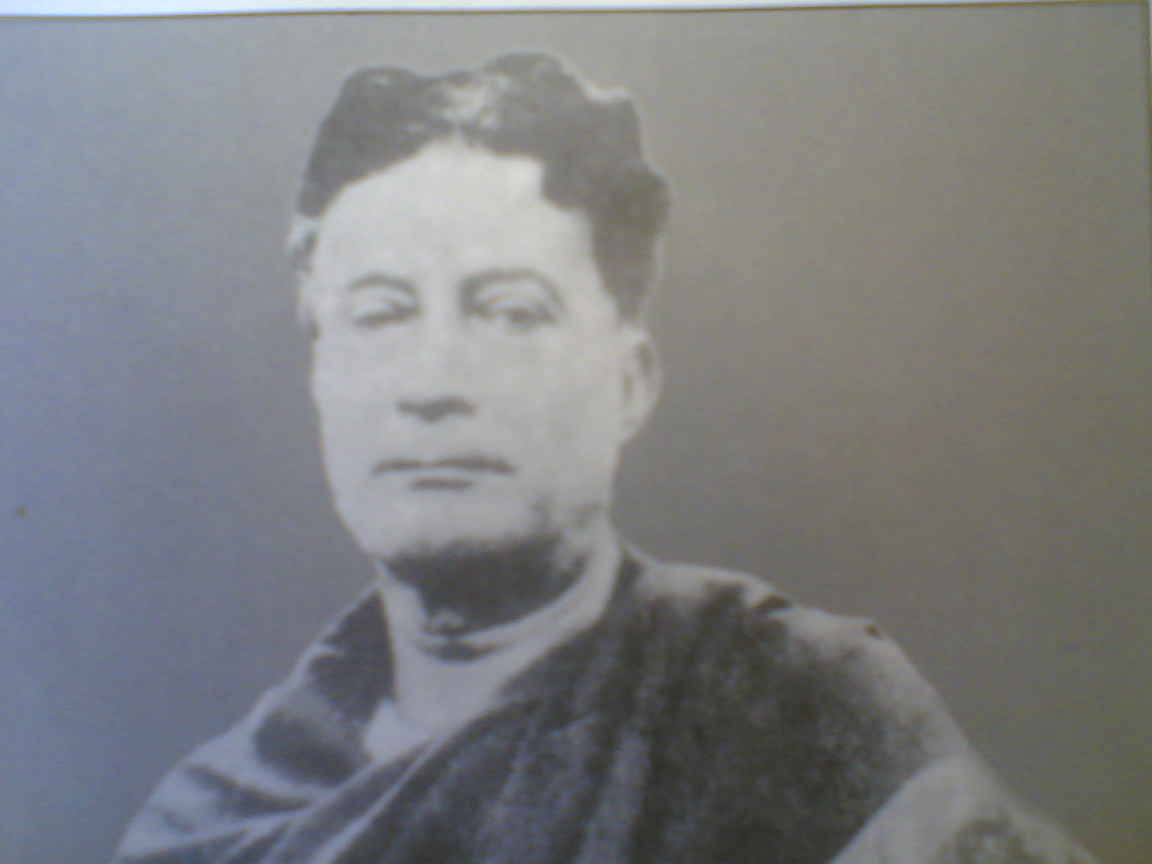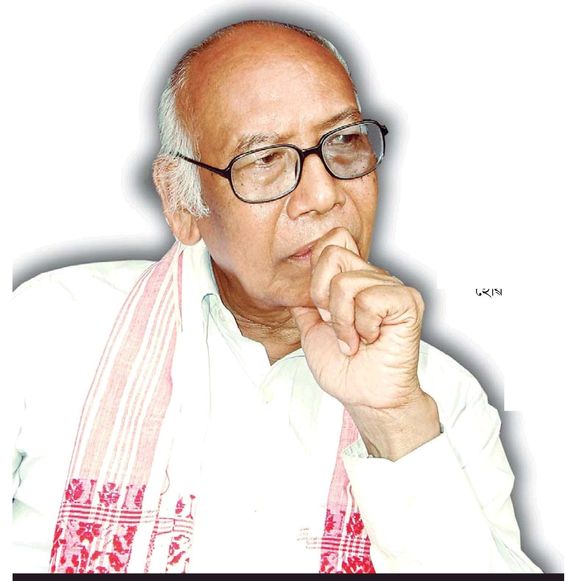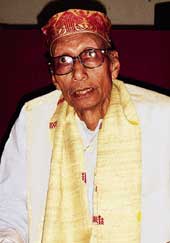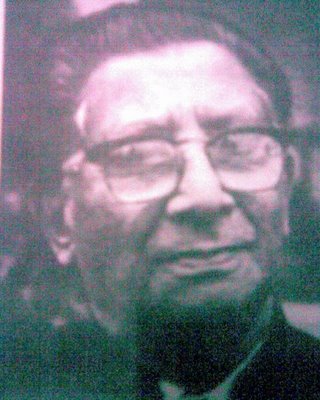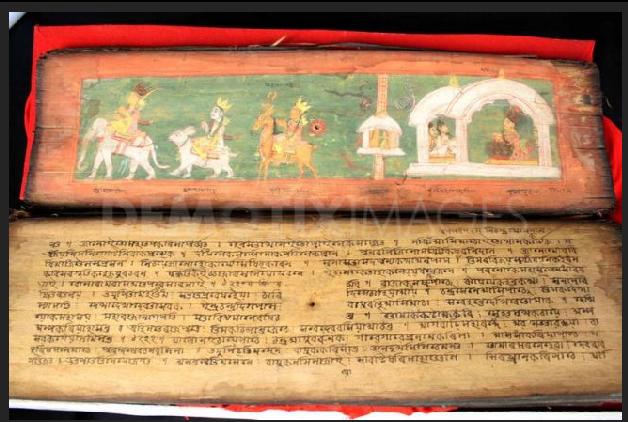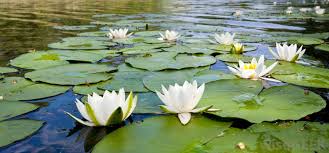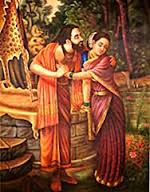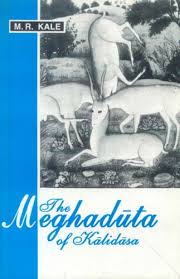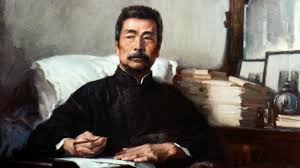Subgroups of Literature
Items in Literature
1. Literature(Material Noun-Neuter) a printed reading material with a number of pages bound together বহু পৃষ্ঠা একেলগ কৰি বন্ধোৱা ছপা কৰা পঠন সামগ্ৰী

Assamese: কিতাপ, গ্ৰন্থ, পুঠি-পাজি, পুথি, পুস্তক,
Bodo: बिजाब, लेखा,
Mising: potin,
Khasi: ka kot,
Garo: ki.tap,
Meeteilon: lairik, লাইরিক,
Mizo (Lushai): bu,
Karbi: kitap, kot, lo, lothui, lou,
Hmar: lekhabu,
Nagamese: kitab,
Dimasa: laishi, laishih,
Ao: kaket,
Chakma: boi,
Hindi: किताब, ग्रंथ, पुस्तक,
Bangla: বই,
Nepali: किताव, पुस्तक,
Rabha: কাওছা,
Deori: গাৰবু,
Hajong: বই
Different POS:
a. Proper Adj.-Neuter: bookish, পুথিগত...Related Idea:
b. Abstract Noun: library, গ্ৰন্থাগাৰ, পাঠাগাৰ, পুথিঘৰ, পুথিভঁৰাল...
2. Literature(Abstract Noun) a highly developed lyrical writing tradition এক সুবিকশিত গীতিময় লিখনিৰ পৰম্পৰা
Assamese: কবিতা, কাব্য, ছন্দ, পদ্য,
Bodo: खन्थाइ,
Mising: ni:nom,
Khasi: ka jingrwai,
Meeteilon: seireng,
Karbi: hirjir,
Nagamese: kobita, podyo,
Dimasa: thairili,
Tai: ম খাম্,
Hindi: कविता
Different POS:
a. Proper Adj.-Common: poetic, কাব্যধৰ্মী, কাব্যসুলভ, কাব্যিক, खनथायआरि...b. Common Noun-Common: bard, poet, কবি, ৰত্নৰাজ, खन्थायगिरि...
3. PersonalitiesLiterature(Proper Noun-Masculine) Krishna Kanta Handiqui was a Sanskrit scholar, an Indologist and philanthropist from Assam. He was born on 20th July, 1898 to a respectable family at Jorhat, a small upper Assam tea town, Krishna Kanta Handiqui epitomized a rare combination of profound knowledge and high order of academic administration. He not only studied but also mastered as many as eleven languages which included Latin, Greek, Italian, French, German, Spanish & Russian besides Pali & Prakrit. He was also awarded the Honorary degree of D. Lit. by Gauhati and Dibrugarh Universities in 1968 and 1972 respectively. Handique was the founder Vice-Chancellor of Gauhati University for nine years (1948-57). Prior to this he was the founder Principal of J.B. College, Jorhat (1930-48) and established the Hemalata Handique Memorial Institute in Jorhat. He was the President of Axom Xahitya Xabha during the Guwahati conference in 1937. He was awarded “Padmashri” in 1955 and “Padma Bhusan” in 1967 by the Govt. of India. Handique three major works are Naisadhacarita of Sriharsa, Yasastilika and Indian Culture, Pravarasena's Setubandha. কৃষ্ণকান্ত সন্দিকৈ অসমৰ এজন সংস্কৃত পণ্ডিত আৰু ভাষাতত্ত্ববিদ৷ ১৮৯৮ চনৰ ২০ জুলাইত যোৰহাটৰ এটা সম্ভ্ৰান্ত পৰিয়ালত জন্ম গ্ৰহণ কৰে৷ ১৯৩০ চনত যোৰহাট জগন্নাথ বৰুৱা মহাবিদ্যালয় প্ৰথম অধ্যক্ষ, ১৯৪৮ চনৰ গুৱাহাটী বিশ্ববিদ্যালয়ৰ প্ৰথম উপাচাৰ্য আৰু ১৯৩৭ চনত অসম সাহিত্য সভাৰ সভাপতি কৃষ্ণকান্ত সন্দিকৈয়ে ভাৰতীয় বহুতো ভাষাৰ লগতে লেটিন, গ্ৰীক, ইটালিয়ান, ফ্ৰান্স, জাৰ্মান, স্পেনিচ, ৰাছিয়ান আৰু পালি-প্ৰাকৃত ভাষাত ব্যুৎপত্তি লাভ কৰিছিল৷ ১৯৫৫ চনত "পদ্মশ্ৰী" আৰু ১৯৬৭ চনত "পদ্মবিভূষণ" লাভ কৰা সন্দিকৈদেৱৰ বিভিন্ন ভাষাত একাধিক প্ৰৱন্ধ প্ৰকাশিত হৈছিল৷ শ্ৰীহৰ্ষৰ "নৈষধ চৰিত", "যশস্তিলক এণ্ড ইণ্ডিয়ান কালচাৰ" আৰু পৱৰসেনৰ "সেতু বন্ধন" সন্দিকৈৰ তিনিখন প্ৰধান গ্ৰন্থ৷
4. Literature(Abstract Noun) a narrative of ones life written by self নিজে লিখা নিজৰ জীৱন কাহিনী
Assamese: আত্মকথা, আত্মচৰিত, আত্মজীৱনী,
Bodo: गोसोखां लिरनाय, जिव खौरां, जिव जारिमिन, सुंद` जिउ सल`मा,
Mising: ai-turying
5. PersonalitiesLiterature(Proper Noun-Masculine) Eminent author and journalist of the State Assam, Padma Barkataki was born to Suryadhar Barkataki and Binandi Devi Barkataki of Rajahowli in Jorhat on July 30, 1926. He started his career as the Shillong Correspondent of The Assam Tribune in 1948 before joining the Hindustan Standard as a feature writer in 1956. He later edited a number of magazines including Amar Pratinidhi (1960), Natun Pratinidhi (1960), Samakaleen (1967), Matribhumi (1979) and Istahar (1982). He was also the chief editor of The North East Daily, and editor of Natun Dainik and Natun Din besides president of Journalists’ Union of Assam. A powerful writer known for his uncompromising stand, Barkataki’s creations encompassed diverse realms from short story and novel to drama and poetry to children’s literature and translation works. He was also an acclaimed critic and prose writer. Barkataki authored as many as 38 novels, five short story collections, two poetry collections, three children’s books, 15 dramas and ten books on various topics. He edited a book titled Hidden Facts from the Magic Land of Assam. He also used to write several columns in newspapers. A reputed radio artiste, Barkataki served as staff artiste and announcer in All India Radio Guwahati-Shillong in 1948, and acted in a record number of radio plays and television (Doordarshan) serials. Barkataki was the recipient of the Su-Ka-Pha Award in 2007. Padma Barkataki passed away 11 March 2008 ১৯২৬ চনৰ ৩০ জুলাইত যোৰহাটৰ ৰাজহাউলিত জন্ম গ্ৰহণ কৰা অসমৰ খ্যাতিসম্পন্ন লিখক আৰু সাংবাদিক পদ্ম বৰকটকী আছিল সূৰ্য্যধৰ বৰকটকী আৰু বিনন্দী দেৱীৰ সন্তান ৷ ১৯৫৬ চনত "হিন্দুস্তান ষ্টেণ্ডাৰ্ড" কাকতত ফিচাৰ লিখক হিচাপে কৰ্মজীৱন আৰম্ভ কৰা বৰকটকীয়ে ১৯৪৮ চনতে শ্বিলঙৰ পৰা প্ৰকাশিত "আছাম ট্ৰিবিউন" কাকত নিয়মীয়াকৈ সংবাদ প্ৰেৰণ কৰিছিল ৷ ১৯৬০ চনত পদ্ম বৰকটকীয়ে কলিকতাৰ পৰা প্ৰকাশিত মাহেকীয়া আলোচনী "আমাৰ প্ৰতিনিধি" আৰু ১৯৬৫ চনত প্ৰকাশিত আলিচনী "নতুন প্ৰতিনিধি" সম্পাদনা কৰিছিল ৷ইয়াৰোপৰি ১৯৬৭ চনত গুৱাহাটীৰ পৰা প্ৰকাশিত "সমকালীন" আলোচনীখনৰ মূখ্য সম্পাদক আছিল ৷ ১৯৭৯ চনত "মাতৃভূমি" আৰু ১৯৮২ চনত "ইস্তাহাৰ" নামৰ আলোচনী দুখনৰো সম্পাদক আছিল ৷ "The North East Daily" নামৰ সংবাদপত্ৰখনৰ মূখ্য সম্পাদক হিচাপে ১৯৯৮ চনত কাৰ্যনিৰ্বাহ কৰা বৰকটকীয়ে নতুন দৈনিক, আজিৰ অসম, নতুন দিন আদি কাকতৰো সম্পাদক আছিল ৷ কোনো দিনে কাৰো লগত আপোচ নকৰা শক্তিশালী গদ্য লিখক বৰকটকীযে অসমীয়া ভাষা-সাহিত্যলৈ চুটি গল্প, উপন্যাস, নাটক, কবিতা, শিশু সাহিত্য আৰু অনুবাদৰ ক্ষেত্ৰত বিপুল অৱদান আগবঢ়াই গৈছে ৷ ইয়াৰোপৰি তেওঁ আছিল অসমীয়া সাহিত্যৰ এজন বিশিষ্ট সমালোচক আৰু প্ৰৱন্ধকাৰ ৷ বৰকটকীয়ে তেওঁৰ জীৱনত ৩৮ খন উপন্যাস, পাচঁখন চুটিগল্প সংস্কৰণ, দুখন কবিতা সংকলন, তিনিখন শিশু পুথি পোন্ধৰখন নাটক আৰু বিভিন্ন বিষয়ৰ দহখন গ্ৰন্থ ৰচনা কৰিছিল ৷ তেখেতে 'Hidden Facts from the Magic Land of Assam' নামৰ এখন গ্ৰন্থ সম্পূৰ্ণ সংকলন আৰু সম্পাদনা কৰিছিল ৷ কেইবাখনো দৈনিক, সাপ্তাহিক কাকতৰ স্তম্ভ লিখক হিচাপে থকা বৰকটকীয়ে ১৯৪৮ চনত গুৱাহাটী-শ্বিলং অনাতাঁৰ কেন্দ্ৰৰ ঘোষক হিচাপেও কাৰ্যনিৰ্বাহ কৰাৰ সময়তে কেইবাখনো অনাতাঁৰ নাটক ৰচনা কৰিছিল ৷ অসম চৰকাৰে ২০০৭ বৰ্ষত চুকাফা বটাঁৰে সন্মানিত কৰে ৷ নিৰলস সাধক সাহিত্যকৰ্মী পদ্ম বৰকটকীয়ে ২০০৮ বৰ্ষৰ ১১ মাৰ্চত ইহলীলা সম্বৰণ কৰে ৷
6. Literature(Proper Adj.-Neuter) anything related to the particular literary genre, romanticism যি ৰমন্যাসবাদৰ স’তে জড়িত
Assamese: ৰমন্যাসবাদী, ৰমন্যাসিক, ৰোমান্তিক,
Bodo: सानसुला, सानखोग्रा,
Garo: ka.saagipa
Different POS:
a. Abstract Noun: romanticism, ৰমন্যাসবাদ, ৰোমান্তিকতাবাদ...
7. Literature(Abstract Noun) a literary and cultural revolution started in western Europe in the eighteenth century ১৮ শতিকাৰ শেষ ভাগত সেই সময়ৰ সমাজ ব্যৱস্থা, ৰাজনীতি আৰু আমোলাতন্ত্ৰৰ বিৰূদ্ধে পশ্চিম ইউৰোপত আৰম্ভ হোৱা এবিধ কলা-সাহিত্যিক আৰু বৌদ্ধিক বিপ্লৱ
Assamese: ৰমন্যাসবাদ, ৰোমান্তিকতাবাদ
Different POS:
a. Proper Adj.-Neuter: romantic, ৰমন্যাসবাদী, ৰমন্যাসিক, ৰোমান্তিক, सानसुला, सानखोग्रा...
8. PersonalitiesLiterature(Proper Noun-Feminine) an Assamese novelist, poet, editor, scholar and a professor. She is the winner of the Sahitya Akademi Award (1983), Jnanpith Award (2000) and is also India`s first Principal Prince Claus Laureate (2008). One of the most celebrated writers of contemporary Indian Literature, she is well known for novels such as The Moth Eaten Howdah of a Tusker, Pages Stained With Blood, and The Man from Chinnamasta.
She is also well known for her attempts to structure social change, both through her writings and through her role as mediator between the banned secessionist group ULFA and the central government of India. Her involvement led to the formation of a peace committee - the People`s Consultative Group. She modestly refers to herself an `observer` of the ongoing peace process rather than a mediator or initiator.
Her work has been performed on stage and in screen. Adajya, a film based on her novel won international awards.
She left for her heavenly abode on November 29, 2011 at Guwahati. অসমীয়া সাহিত্যৰ এগৰাকী ঔপন্যাসিক, কবি, গল্পকাৰ আৰু গৱেষক৷ দিল্লী বিশ্ববিদ্যালয়ৰ ভাৰতীয় ভাষা বিভাগত অধ্যাপক হিচাপে তেওঁ কৰ্মজীৱন আৰম্ভ কৰি বৰ্তমান অৱসৰ গ্ৰহণ কৰে৷ তেওঁ ১৯৮৩ চনত সাহিত্য একাডেমি বঁটা, ২০০০ চনত জ্ঞানপীঠ বঁটাৰ লগতে দেশ-বিদেশৰ একাধিক বঁটা-সন্মানেৰে বিভূষিত হয়৷ তেওঁৰ উল্লেখযোগ্য গ্ৰন্থ হ'ল- দঁতাল হাতীৰ উঁয়ে খোৱা হাওদা, মামৰে ধৰা তৰোৱাল আৰু দুখন উপনাস, চিন্নমষ্টৰ মানুহজন, চেনাবৰ সোঁত, তেজ আৰু ধুলিৰে ধূষৰিত পৃষ্ঠা আদি৷ সংস্কাৰ, উদং বাকচ আদি তেওঁৰ উল্লেখযোগ্য চুটিগল্প৷ "আধালিখা দস্তাবেজ" তেওঁৰ একমাত্ৰ আত্মজীৱনী৷ তেওঁ 'অসম সংযুক্ত মুক্তি বাহিনী' (আলফা) আৰু কেন্দ্ৰ চৰকাৰৰ মাজত আলোচনা কৰাৰ ক্ষেত্ৰত উল্লেখযোগ্য ভূমিকা গ্ৰহণ কৰি অসমৰ এটা জলন্ত সমস্যা সমাধানত মনোনিৱেশ কৰিছিল৷
২০১১ চনৰ ২৯ নৱেম্বৰত তেওঁ গুৱাহাটীত ইহলীলা সম্বৰণ কৰে ৷
9. Literature(Abstract Noun-Neuter) A short humorous poem with five lines. The two long first lines rhyme with each other and are followed by two short lines that rhyme with each other. The last, long line rhyme with the first two. পাঁচশাৰীৰ ব্যংগাত্মক কবিতা| প্ৰথম দুশাৰী দীঘলীয়া আৰু এক ছন্দযুক্ত| তৃতীয় আৰু চতুৰ্থ শাৰী চুটী, দুয়োশাৰী এক পাৰষ্পৰিক মিল থকা নতুন ছন্দেৰে গঠিত| শেষশাৰী আকৌ দীঘল আৰু প্ৰথম দুশাৰীৰ সৈতে একে ছন্দৰ।
10. Literature(Abstract Noun-Neuter) The art and science of reasoning, especially of the structure of propositions as distinguished from their content and of method and validity in deductive reasoning. যুক্তিসঙ্গতভাৱে কোনো এটা বিষয় ফহিয়াই দেখুওৱা শাস্ত্ৰ৷
Assamese: তৰ্কবিদ্যা, তৰ্কশাস্ত্ৰ, ন্যায়শাস্ত্ৰ, যুক্তিতত্ত্ব, যুক্তিতত্ব, যুক্তিবিদ্যা, যুক্তিশাস্ত্ৰ,
Bodo: जुक्टि बिदधा, तर्कयुक्तिवाद, न्याय सास्त्रा, बादायशाश्त्र,
Deori: চ্চু-নিজু
Related Idea:
a. Abstract Noun: rationalism, যুক্তিবাদ...
11. PersonalitiesLiteratureEkasarana Dharma(Proper Noun-Masculine) Mahapurusha Srimanta Sankardeva (1449-1568) saint-scholar, playwright,social-religious reformer, is a colossal figure in the cultural and religious history of Assam, India. Sankaradeva was born into the Shiromani (chief) Baro-Bhuyans family, near Bordowa in Nagaon in a village called Ali-pukhuri. He began attending the tol or chatrasaal(school) of the renowned scholar Mahendra Kandali at the age of twelve and soon wrote his first verses: karatalakamala kamaladalanayana | His literary works, we can divide in Six part as (1) Transliteration- Bhagavat (Book VI, VIII, I, II, VII, X, XI, XII; IX not available), Ramayana (uttarakanda). (2) Poetic works (kavya)- Harischandra-upakhyana, Rukmini-harana, Ajamilopakhyana, Bali-chalana Kurukshetra-yatra, Amrta-manthana. (3) Drama (Naat)- Patni-prasada, Kalia-damana, Keli-gopala, Rukmini-harana, Parijata-harana, Ram-vijay.(4) Songs - Borgeet, Bhatima (5) NamPrasang- Kirtana-ghosha, Gunamala.(6) Bhakti Theory- Bhakati-pradipa, Bhakti Ratnakara. Sattriya dance, that Sankaradeva first conceived and developed and which was later preserved for centuries by the sattras, is now among the classical dance forms of India.Thus, in 1568, after leading a most eventful life dedicated to enlighten humanity; the Mahapurusha passed away - within six months of his stay at Bheladonga -at the remarkable age of 120 years. মহাপুৰুষ শ্ৰীমন্ত শঙ্কৰদেৱ (১৪৪৯-১৫৬৮) অসমৰ নৱ-বৈষ্ণৱ ধৰ্মৰ প্ৰচাৰক ৷ অসমৰ ধৰ্ম, সমাজ, সুকুমাৰ কলা, সাহিত্য-সংস্কৃতি সকলো ক্ষেত্ৰতে শঙ্কৰদেৱৰ অৱদান বিৰল ৷ ১৪৪৯ চনত নগাঁৱৰ আলিপুখুৰি নামে ঠাইত বাৰ-ভূঞাঁৰ বংশত তেখেতৰ জন্ম হয় ৷ বাৰ বছৰ বয়সত তেখেতে মহেন্দ্ৰ কন্দলীৰ টোলত শিক্ষা গ্ৰহণ কৰি অতি কম দিনৰ ভিতৰতে কোনো মাত্ৰা নোহোৱাকৈ এক অনুপম কবিতা (কৰতল কমল কমল দল নয়ন) ৰচনা কৰি নিজৰ প্ৰতিভাৰ পৰিচয দিছিল ৷ ৰচনাৰীতি অনুসৰি শঙ্কৰদেৱৰ ৰচনাক ছটা ভাগত ভগাব পাৰি (১) অনুবাদমূলক- ভাগৱতৰ প্ৰথম, দ্বিতীয়, দশম, একাদশ আৰু দ্বাদশ স্কন্ধ'ৰ অনুবাদ, উত্তৰাকাণ্ড ৰামায়ণ (২) কাব্য- হৰিশ্চন্দ্ৰ উপাখ্যান, ৰুক্মিনীহৰণ, বলিছলন, অমৃত মন্থন, কুৰুক্ষেত্ৰ, অজামিল উপাখ্যান (৩) অংকীয়া নাট- পত্নীপ্ৰসাদ, কালিয়াদমন, কেলিগোপাল, ৰুক্মিনী হৰণ, পাৰিজাত হৰণ, ৰামবিজয় (৪) গীত- বৰগীত, ভটিমা (৫) নাম প্ৰসঙ্গ- কীৰ্তন, গুণমালা (৬) ভক্তিতত্ত্ব- ভক্তি ৰত্নাকৰ, ভক্তি প্ৰদীপ ৷ শঙ্কৰদেৱে পোনপ্ৰথমবাৰৰ কাৰণে 'চিহ্নযাত্ৰা' নাট লিখি পটত চিত্ৰ আঁকি সাত বৈকুণ্ঠৰ তাৎপৰ্য ব্যাখ্যা কৰিছিল ৷ কীৰ্তন তেখেতৰ কবিত্বৰ শ্ৰেষ্ঠ নিদৰ্শন আৰু অসমীয়া সাহিত্যৰ কীৰ্তিস্তম্ভ ৷ অসমীয়া সংস্কৃতিলৈ নামঘৰ, সত্ৰ, খোল, আৰু মুখাশিল্প আৰু সত্ৰীয়ানৃত্ৰৰ ক্ষেত্ৰত শঙ্কৰদেৱৰ অৱদান উল্লেখযোগ্য ৷ ১৫৬৮ চনত প্ৰায় ছকুৰি বছৰ বয়সত শঙ্কৰদেৱৰ বৈকুণ্ঠপ্ৰয়াণ হয় ৷
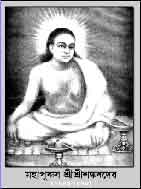
Assamese: অধিকাৰী, গঙ্গাধৰ, গুৰুজনা, গোমস্তা, ডেকাগিৰী, বাণীনাথ, বৰআতা, শংকৰদেৱ, শঙ্কৰদেৱ, শ্ৰীমন্ত, শ্ৰীমন্ত শঙ্কৰদেৱ, শ্ৰীশ্ৰীশঙ্কৰদেৱ,
Dimasa: Sonkordeb
Related Idea:
a. Proper Noun-Masculine: Madhabdev, SriSri Madhabdev, বঢ়াৰ-পো, মাধৱদেৱ, শ্ৰীশ্ৰীমাধৱদেৱ...b. Proper Noun: উৰেষা-বৰ্ণন...
12. Literature(Abstract Noun) a Japanese poem of 17 syllables in three lines of five, seven and five syllables respectively. It is a kind of miniature snap in words এবিধ তিনিশৰীয়া জাপানী কবিতা| প্ৰথম শাৰীত পাঁচটা, দ্বিতীয় শাৰীত সাতটা আৰু তৃতীয় শাৰীত পাঁচটা শব্দাংশ থাকে|
13. Literature(Abstract Noun) mental picture; language that produces picture (of objects, actions, feelings, thoughts, ideas, states of mind or any sensory or extra sensory experience) in the mind of people while thinking, reading or listening. মনত ভাষাৰে অঁকা ছবি| পঢ়া, চিন্তাকৰা বা শুনাৰ সময়ত কোনো বস্তু, কাৰ্য্য, ভাব-অনুভূতি, আঁচনি আদি বিষয়ে মনত ভাষাৰ সহায়ত সৃষ্টিহোৱা ছবি।
14. Literature(Abstract Noun) the repeated use of the same letter, usually consonant sound, at the beginning of words which are close together in a line of verse or prose as in:
'Five miles meandering with a mazy motion' OR
'Betty Botter bought some butter...'
কবিতা বা গদ্যৰ ওচৰা-ওচৰিকৈ থকা শব্দৰ প্ৰথম বৰ্ণ, সাধাৰণতে ব্যঞ্জন ধ্বনিৰ বাৰম্বাৰ ব্যৱহাৰ| যেনে: “বগাকৈ বগলী বহলাই বহিছে বলুকাত বিয়লি বেলা, বকুল বাগৰিছে ববছা বনতে বুটলি বিলাওঁগৈ ব’লা”
15. OrganizationsLiterature(Proper Noun-Neuter) Assam Sahitya Sabha is the biggest literary organization in Assam. It was established in 1917 AD with a mission to work for development of Assamese language. Presently it has about one thousand branches all over Assam and also outside the state. The central office is at Jorhat a city of historical importance. The branches and the district units also have their offices in their respective places. The first name of this Society was "Sadau Asam Sahitya Sanmilan" but in 1924 May 5th changed this name and in 1944 registered a new name "Assam Sahitya Sabha". The first conference was held in the month of December 1917 under the presidentship of Padmanath Gohain Baruah, a big name in the history of modern Assamese literature. The Symbol of this organization was drawn on 28th October 1960 by artist Jugal Das. Now Kanak sen Deka is the president of this organization and he also a editor of Assamese daily 'Dainik Agradoot'. "Sira Senehi Mor Bhasa Janani" and "O mor Aponar Desh" is opening and closing songs of Asom Sahitya Sabha. অসম সাহিত্য সভা অসমৰ এটা উল্লেখযোগ্য সাহিত্য অনুষ্ঠান ৷ অসমীয়া ভাষা-সাহিত্যৰ সৰ্বাঙ্গীন উন্নতিৰ কাৰণে ১৯১৭ চনত ইয়াক প্ৰতিষ্ঠা কৰা হয় ৷ বৰ্তমান এহেজাৰৰো আধিক শাখা থকা এই অনুষ্ঠানটোৰ অসমৰ বাহিৰতো শাখা আছে ৷ ইয়াৰ মুখ্য কাৰ্য্যালয়টো আছে যোৰহাটত ৷ আনহাতে অসমৰ অন্যান্য প্ৰধান ঠাইসমূহতো ইয়াৰ একোটা কাৰ্য্যালয় আছে ৷ এই অনুষ্ঠানটিৰ প্ৰথম নাম আছিল "সদৌ আসাম সাহিত্য সন্মিলনী" আৰু ১৯২৪ চনৰ ৫ মে'ত ইয়াক পৰিবৰ্তন কৰি ১৯৪৪ চনৰ পৰা ইয়াক " অসম সাহিত্য সভা" হিচাবে গ্ৰহণ কৰা হয় ৷ ইয়াৰ প্ৰথম সন্মিলনখন অনুষ্ঠিত হৈছিল ১৯১৭ চনৰ ডিচেম্বৰ মাহত পদ্মনাথ গোহাঞি বৰুৱাৰ সভাপতিত্বত ৷ এই সভাৰ প্ৰতীকটো অংকন কৰিছিল ১৯৬০ চনৰ ২৮ অক্টোবৰত শিল্পী যুগল দাসে ৷ বৰ্তমান এই সভাৰ সভাপতি হ'ল 'অগ্ৰদূত' কাকতৰ সম্পাদক কনক সেন ডেকা ৷ এই সভাৰ আৰম্ভণি আৰু সমাপ্তি গান দুটা হ'ল ক্ৰমে "চিৰ চেনেহী মোৰ ভাষা জননী" আৰু "অ' মোৰ আপোনাৰ দেশ"৷
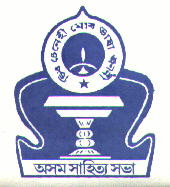
Assamese: অসম সাহিত্য সভা,
Karbi: Assam Lamet Amei,
Dimasa: Asam Lairidim Mel
16. PersonalitiesLiterature(Proper Noun-Masculine) Lakshminath Bezbaruah who pioneered the modern Assamese literature occupies a very high position in the field of Indian literature. Born in 1868 in a well-known family of Assam, he had his early education at Sibsagar and his higher education at Calcutta. A many-sided personality- journalist, lecturer, poet and
more especially writer- Laksminath Bezbaruah Set a high literary standard through the monthly periodical "Banhi" which he edited and published. A versaltile writer, his works incluide plays, stories, poems, humorous sketches and works of literary criticism. It was perhaps in his plats that he found his best literary expression. His poem "O'mor Apponar Desh" is among the best known songs of Assam. Into Assam's literary tradition he breathed new life. Honours so ught him out in his later life. In 1921, he presided over the All-Assam Students' Conference at Guahati. Two years later he was honoured as "Rasraj" for his humorous writings. He presided over the Guahati session of the Assam Sahitya Sabha in 1924. Lakshminath Bezbaruah was not only a literary figure of outstanding eminence but a istinguished leader of modern Assam.
অসমীয়া ভাষা-সাহিত্যৰ এক অগ্ৰণী পথপদৰ্শক আছিল লক্ষ্মীনাথ বেজবৰুৱা ৷ কবিতা, নাটক,গল্প, উপন্যাস, প্ৰৱন্ধ, ৰম্যৰচনা, সমালোচনা, প্ৰহসন, জীৱনী, আত্মজীৱনী, শিশুসাহিত্য, ইতিহাস অধ্যয়ন, সাংবাদিকতা আদি সকলো দিশতে বেজবৰুৱাই অমূল্য অৱদান আগবঢ়াই গৈছে ৷ কৃপাবৰ বৰুৱা ছদ্মনামতো বেজবৰুৱাই অনেক কৃপাবৰী সাহিত্য সৃষ্টি কৰি এজন সমাজ সংস্কাৰক হিচাপে চিনাকি দিছে৷ সেইবাবেই বেজবৰুৱাক সাহিত্যৰথী, ৰসৰাজ আখ্যা দিয়া হয় ৷ বেজবৰুৱাৰ জন্ম হয় ১৮৬৮ চনত মৰনৈপাৰৰ আহঁতগুৰি নামে ঠাইত ৷ দেউতাকৰ চাকৰিৰ বদলিৰ লগে লগে ক্ৰমে তেজপুৰ, লখিমপুৰ, গুৱাহাটী আদি বিভিন্ন ঠাইত শিক্ষা গ্ৰহণ কৰি শেষত কলিকতাত উচ্চ শিক্ষা গ্ৰহণ কৰে ৷ কলিকতাত থাকোতেই চন্দ্ৰকুমাৰ আগৰৱালা আৰু হেমচন্দ্ৰ গোস্বামীৰ লগতে অন্যান্য কলিকতাত পঢ়ি থকা ছাত্ৰ সকলক লগত লৈ "অসমীয়া ভাষা উন্নতি সাধিনী সভা" নামে এখন সভা স্থাপন কৰে৷ এই সভাৰ মুখপত্ৰ হিচাপে ১৮৮৯ চনত তেওঁলোকে 'জোনাকী' নামে এখন আলোচনী প্ৰকাশ কৰে৷ 'জোনাকী' আলোচনীৰ সম্পাদনাৰ উপৰিও তেওঁ ১৯০৯ চনত প্ৰকাশ কৰা 'বাঁহী' অলোচনীৰ প্ৰতিস্থা আৰু সম্পাদনা কৰে৷ ১৯২১ চনত 'সদৌ অসম ছাত্ৰ সন্মিলনীৰ' সভাপতি হোৱাৰ উপৰিও ১৯২৪ চনত গুৱাহাটীত বহা সাহিত্য সভাৰ সভাপতি হয় ৷ বেজবৰুৱা এজন আশাবাদী, উদাৰমনৰ আৰু দেশপ্ৰেমিক লোক আছিল৷ সমাজৰ দোষ-ত্ৰুটিবোৰ আঁতৰাই
সমাজখন নিকা কৰি নতুন সমাজ গঢ়াৰ আশা কৰিছিল৷ অসমৰ জাতীয় সংগীত 'অ' মোৰ আপোনাৰ দেশ' ৰচনা কৰি তেওঁ
অসম প্ৰীতিৰ চিনাকি দিছিল ৷ আজিও এই সংগীত অসমৰ সকলো সভা অনুস্থানত অতি শ্ৰদ্ধাৰে গোৱা হয়৷
17. PersonalitiesLiteratureCinema(Proper Noun-Masculine) Bhabendra Nath Saikia was a top ranking novelist, short story writer, play writer
and film director from Assam. He was born on February 20, 1932 at Nagaon town. He worked as reader in Physics in Gauhati University. Many stories have been translated into indian languages. He was the founder of two most popular magazines: Prantik, a vernacular fortnightly, & Safura, a childrens monthly. He won many literary awards, including Sahitya Academy (1976), Assam valley Literary award ( 1990) and was also recognised with the Padma Shri. He had also written a large number of plays for All India Radio (AIR). He has been associated
actively with the stage as a playwrit and director. He has written many plays for
'Mobile Theatre' of Assam, and a number of One Act Plays. He had directed eight feature films. These films have been screened at International Film Festivals held at various places of india and world. Seven out of his eight films have been selected for Indian Panorama Section of the International Film Festival of India. He received the Rajat Kamal Award of the Government of India for his sevent films. Dr. Saikia died on August 13, 2003 in Guwahati. ভবেন্দ্ৰ নাথ শইকীয়া অসমীয়া ভাষাৰ শ্ৰেষ্ঠ ঔপন্যাসিক, গল্পলিখক, নাট্যকাৰ আৰু বোলছবি পৰিচালক সকলৰ ভিতৰত অন্যতম৷ তেখেতৰ জন্ম হয় ১৯৩২ চনৰ ২০ ফেব্ৰুৱাৰীত নগাঁও চহৰত৷ তেখেতে গুৱাহাটী বিশ্ববিদ্যালয়ৰ পদাৰ্থ বিজ্ঞান বিভাগত ৰিডাৰ হিচাবে নিজৰ কৰ্মজীৱন আৰম্ভ কৰে ৷ তেখেতৰ বহুতো গল্প অন্যান্য ভাৰতীয় ভাষালৈ অনুবাদ হৈছে৷ অসমীয়া ভাষাৰ পষেকীয়া আলোচনী ’প্ৰান্তিক’ আৰু শিশু আলোচনী ’সঁফুৰা’-ৰ প্ৰতিষ্ঠাপক সম্পাদক আছিল৷ তেখেতে ১৯৭৬ চনত ’সাহিত্য একাডেমি’ আৰু ১৯৯০ চনত ’অসম উপত্যকা বঁটা’ লাভ কৰাৰ উপৰিও ’পদ্মশ্ৰী’ সন্মান লাভ কৰে৷ অসমীয়া নাট্য জগতত ভবেন্দ্ৰ নাথ শইকীয়াই বিশেষ অৱদান আগবঢ়াই গৈছে৷ কেইবাখনো ৰেডিঅ’ নাট, একাঙ্কিকা নাটক ৰচনা কৰাৰ উপৰিও ভ্ৰাম্যমাণ মঞ্চৰ বাবেই তেখেতে একাধিক নাটক ৰচনা কৰে৷ বোলছবি জগতত শইকীয়াই আঠখন বোলছবি পৰিচালনা কৰে আৰু তেখেতৰ বোলছবিয়ে ভাৰত আৰু বিদেশত আন্তৰাষ্ট্ৰীয় বোলছবি মহোৎসৱত বিশেষ সুখ্যাতি লাভ কৰে৷ তেখেতৰ সাতখন বোলছবিৰ কাৰণে ভাৰত চৰকাৰে ’ৰজত কমল বঁটা’ প্ৰদান কৰে৷ ২০০৩ চনৰ ১৩ আগষ্টত গুৱাহাটীত ড. শইকীয়াৰ মৃত্যু হয়৷ ভবেন্দ্ৰ নাথ শইকীয়াৰ ৰচনাসমূহৰ ভিতৰত অন্যতম হ’ল- আত্মজীৱনী- জীৱন বৃত্ত, জীৱন ৰেখা৷ প্ৰৱন্ধ সংকলন- শেষ পৃষ্ঠা (চাৰিটা খণ্ড)৷ শিশু গ্ৰন্থ- মৰমৰ দেউতা, তোমালোক ভালে থাকা, শান্তশিষ্ট হিষ্টপুষ্ট মহাদুষ্ট, মহাদুষ্টৰ দুষ্টবুদ্ধি, মৰম৷ চুটিগল্প- প্ৰহৰী, সেন্দুৰ, গহ্বৰ, শৃঙ্খল, উপকণ্ঠ, এই বন্দৰৰ আবেলি, বৃন্দাবন, তৰংগ, সন্ধ্যা ভ্ৰমণ, গল্প আৰু শিল্প, আকাশ৷ উপন্যাস- অন্তৰীপ,ৰম্যভূমি ইত্যাদি ৷
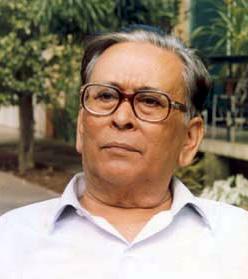
Assamese: ডঃ ভবেন্দ্ৰ নাথ শইকীয়া,
Dimasa: daktor bobendro nat soikiya
18. Literature(Proper Noun) The Charyapada is a collection of 8th-12th century Vajrayana Buddhist caryagiti, the mystical song composed by a sect of Buddhists about their religion and religious practice. অষ্টম-দ্বাদশ শতিকাত বৌদ্ধ সিদ্ধাচাৰ্যই ৰচনা কৰা বৌদ্ধ ধৰ্মৰ আচৰণীয় আৰু অনাচৰণীয় কথাৰ গীত বিশেষ৷
19. Literature(Proper Noun) The Jnanpith Award is a literary award in India. it is one of the two most prestigious literary honours in the country.The award carries a check for Rs. 5,00,000 a citation plaque and a bronze replica of Vagdevi. ভাৰতীয় জ্ঞানপীঠ বঁটা ভাৰতৰ সৰ্বোচ্চ সাহিত্য-সন্মান ৷ ভাষাৰ সাহিত্যৰ ক্ষেত্ৰত আগবঢ়োৱা বিশিষ্ট সৃষ্টিশীল কৰ্মৰ বাবে এই সন্মান প্ৰদান কৰা হয় ৷ ইয়াত নগদ পাঁচ লাখ টকা, এখন মানপত্ৰ আৰু সৰস্বতীৰ এটি ব্ৰঞ্জৰ মূৰ্তি দিয়া হয় ৷
20. Literature(Proper Noun) The Sahitya Akademi Fellowship is a literary honour in India. Awarded by the Sahitya Akademi, India's National Academy of Letters, to the "immortals of literature," and limited to twenty one individuals at any given time,it is the highest literary honour conferred by the Government of India. ভাৰতীয় আঞ্চলিক ভাষাসমূহৰ উৎকৰ্ষ আৰু বিকাশত উদ্গনি যোগাবৰ কাৰণে সাহিত্য একাডেমীয়ে প্ৰতিবছৰে এই বঁটা প্ৰদান কৰে ৷ ই ভাৰত চৰকাৰৰ আন এটা শ্ৰেষ্ঠ সাহিত্য সন্মান ৷
21. PersonalitiesLiteratureEkasarana Dharma(Proper Noun-Masculine) SriSri Madhabdeva (1489-1596) is an important preceptor of the Mahapuruxiya Dharma known for his loyalty to his guru, Srimanta Sankardev as well as his artistic brilliance. Madhabdeva was born in 1489 in "Horixinga Borah Ujiror Tol" and later shifted to a new home on the bank of Letekupukhuri in Lakhimpur District of Assam. Letekupukhuri is situated between Narayanpur and Bihpuria of Lakhimpur District. Initially a sakta worshipper, he was converted to Mahapuruxiya Dharma by the Sankardev and became his most prominent disciple. He became the religious as well as artistic successor of Sankardeva after the later's death in 1568. He is known particularly for his book of hymns, the Naam Ghoxa, as well as a large selection of songs called Borgeets. মহাপুৰুষ শংকৰদেৱৰ প্ৰিয় শিষ্য, সেৱক তথা প্ৰধান সংগী মহাপুৰুষ মাধৱদেৱ শংকৰদেৱৰ পিচৰ অসমীয়া মহাপুৰুষীয়া
ধৰ্মৰ ধৰ্মাধিকাৰী ৷ কছাৰীৰ উপদ্ৰবত মাধৱদেৱৰ পিতৃ বৰকণাগিৰি ( মহোদৰ বা গোবিন্দ গিৰি ) নিজৰ ভাৰ্য্যাসহিত ব্ৰহ্মপুত্ৰৰ উত্তৰ পাৰলৈ পলাই অহাৰ সময়ত বাটতে তেওঁলোকৰ সকলো সম্পত্তি চুৰে নিয়ে ৷ এনে অসহায় অৱস্থাত অসম ৰজাৰ উজিৰ হৰিশিঙা গিৰীয়ে লগ পায় নিজৰ ঘৰতে পৰিচৰ্য্যা কৰি ৰাখে ৷ এই হৰিশিঙা গিৰীৰ ঘৰতে 1489 চনত মাধৱদেৱৰ জন্ম হয় ৷ ইয়াতেই তেঁও ডাঙৰ-দীঘল হোৱাৰ পিছত লখিমপুৰ জিলাৰ নাৰায়ণপুৰ নামে ঠাইৰ লেটেকুপুখুৰিৰ পাৰতে নিজৰ পিতৃ-মাতৃসহ নিগাজিকৈ বাস কৰে ৷ প্ৰথম অৱস্থাত শাক্ত ধৰ্মৰ প্ৰতি আসক্ত আছিল যদিও শংকৰদেৱক লগ পোৱাৰ পিছত বৈষ্ণব ধৰ্মত নিজকে সমৰ্পণ কৰে ৷ তেঁওৰ প্ৰধান তত্ত্বমূলক বৈষ্ণৱ ধৰ্মৰ গ্ৰন্থ হ'ল "নামঘোষা" ৷ আনহাতে তেঁও একাধিক বৰগীত, ভটিমা, নাট (ঝুমুৰা) আদিও ৰচনা কৰে ৷
Assamese: বঢ়াৰ-পো, মাধৱদেৱ, শ্ৰীশ্ৰীমাধৱদেৱ
Related Idea:
a. Proper Noun-Masculine: Sankardev, Srimanta Sankardeva, Xongkordev, অধিকাৰী, গঙ্গাধৰ...
22. LiteratureEkasarana Dharma(Proper Noun) a series of prayers song written by Sankardev and Madhavdev. Sankardev written mainaly there type of song named Deva bhatima (panegyrics to God), Naat bhatima (for use in dramas) and Raja bhatima (panegyrics to kings) and Madhavdev written Guru Bhatima. মহাপুৰুষ শংকৰদেৱ আৰু মাধৱদেৱে ৰচনা কৰা গুণ-বৰ্ণনা বা স্তুতি বিষয়ক এক শ্ৰেণীৰ গীত৷ মহাপুৰুষ শংকৰদেৱে তিনিধৰণৰ ভটিমা ৰচনা কৰে৷ দেৱ ভটিমা (ভগৱানৰ স্তুতি বিষয়ক), নাট ভটিমা(অংকীয়া নাটত ব্যৱহৃত) আৰু ৰাজ ভটিমা (ৰজাৰ স্তুতি বিষয়ক) কিন্তু মাধৱদেৱে ইয়াৰ লগতে নিজৰ গুৰু শংকৰদেৱৰ গুণ বৰ্ণনা কৰি গুৰু ভটিমা ৰচনা কৰে৷
23. PersonalitiesLiterature(Common Noun-Masculine) Rong Bong Terang is a litterateur whose epoch Rong Milir Hanhi sent him into the acme of glory. Anglong district was born to Rupsing Terang and Ba-hak Ronghangpi at Lumbungdingpi near Bokoliaghat on January 13, 1937. After passing the Matriculation examination from Lanka High School in 1957, he studied at Nagaon College and graduated from Gauhati University in 1962. Terang started his career as a teacher in Lanka and Kaki high schools and Diphu Girls’ High School. He later joined Diphu Government College as a lecturer in Assamese and became the Principal-in charge on April 1, 2000. He retired from the college on November 30, 2002. Married to Kanam Hansepi, Terang has two sons and two daughters.Notable works of Terang include novels Rongmilir Hahi (1981), Krantikalar Ashru (2005), Jak Herowa Pakhi (2005), and Neela Orchid (2001). Samanway Prabah (1989) and Faringor Geet (1990) are collections of articles and short stories respectively, while Srimad Bhagawad Gita (1986), Smritir Papori (1998) and Langsoliator Kukrung (2007) are some other works. His uncompiled short stories are Bokulor Diary, Dhuniya Khamor Sithikhon, Sei Phalakkhon and Bisforon, A recipient of Asam Sahitya Sabha’s Bishnu Rabha award in 1982 and Asom Prakashan Parishad award in 1983, Terang was honoured with Padmashri in 1989. He also received Asam Sahitya Sabha’s Basudev Jalan award in 2008 and Mahapurush Madhavdev award in 2008.Terang has been elected as president of Asam Sahitya Sabha for the session 2009-11. He will preside over the Sabha’s ensuing Dhemaji session in February 2009. ৰংমিলিৰ হাঁহি’ৰ স্ৰষ্টা অসম সাহিত্য সভাৰ ধেমাজি অধিৱেশনৰ সভাপতি অসমীয়া সাহিত্যৰ অক্লান্ত সাধক কথাশিল্পী ৰংবং তেৰাং ১৯৩৭ চনত কাৰ্বি আংলং জিলাৰ লাবুং দিংপিত (বকলীয়াঘাট)-ত জন্ম গ্ৰহণ কৰে ৷ তেওঁৰ পিতৃৰ নাম আছিল ৰূপছিং তেৰাং আৰু মাতৃৰ নাম বা-ইক ৰংহাংপী ৷ প্ৰথম অৱস্থাত শিক্ষকতাৰে জীৱন নিৰ্বাহ কৰা তেৰাঙে পিছলৈ ডিফু চৰকাৰী কলেজৰ প্ৰৱক্তা হিচাপে যোগদান কৰে ৷ দীৰ্ঘদিন সাহিত্য সাধনাৰ স্বীকৃতি হিচাপে তেৰাঙে ২০০৮ চনত শ্ৰীশ্ৰী মাধৱদেৱ বঁটা, অসম সাহিত্য সভাৰ বাসুদেৱ জালান বঁটা, ১৯৮২ চনত বিষ্ণু ৰাভা বঁটা, ১৯৮৩ চনত প্ৰকাশন পৰিষদ বঁটা লাভ কৰাৰ উপৰিও ১৯৮৯ চনত ৰাষ্ট্ৰীয় সন্মান পদ্মশ্ৰী লাভ কৰে ৷ কেইবাখনো উপন্যাস, গল্পসংকলন, প্ৰৱন্ধ সংকলন প্ৰকাশ পোৱাৰ উপৰিও তেওঁ কাৰ্বি ভাষাত অনেক গ্ৰন্থ ৰচনা কৰিছে ৷ তেওঁৰ উল্লেখযোগ্য ৰচনা হ’ল - কাৰ্বি লামতাছাম (কাৰ্বি-অসমীয়া অভিধান), উপন্যাস- ৰংমিলিৰ হাঁহি, ক্ৰান্তিকালৰ অশ্ৰু, জাক হেৰোৱা পক্ষী, নীলা আৰ্কিড ৷ সমন্বয় প্ৰবাহ (প্ৰবন্ধ সংকলন), বন ফৰিঙৰ গীত (গল্প সংকলন) আদিৰ উপৰিও আলোচনিৰ পাতত অনেক উপন্যাস, গল্প প্ৰকাশিত হৈছে ৷
24. PersonalitiesLiterature(Proper Noun-Masculine) Kanak Sen Deka is the President of Assam Sahitya Sabha for 2005-09 and the editor of Dainik Agradoot, one of the oldest and popular Assamese daily.
25. PersonalitiesLiterature(Proper Noun-Masculine) Syed Abdul Malik (1919-2000) was one of the most widely known and popular writers in Assamese literature. Beginning his literary career in the early forties he enriched Assamese literature with short stories, novels, poetry and other writings spanning over five decades. Syed Abdul Malik authored as many as 50 novels, 25 short story collections, five poetry collections, three children’s books, 20 dramas and many books on various topics. He was the President of Axom Xahitya Xabha in 1977.He won many literary awards, including Sahitya Academy (1972) for novel "Aghari Atmar Kahini", Assam valley Literary award ( 1992), Sankardev award (1995) and was also recognised with the Padma Shri and Padma Bhushan. He had also written a large number of plays for All India Radio (AIR). চৈয়দ আব্দুল মালিক (১৯১৯-২০০০) অসমীয়া সাহিত্যৰ এজন বিশিষ্ট গল্পকাৰ, ঔপন্যাসিক, নাট্যকাৰ আৰু কবি৷ তেওঁ ২৫ খনৰো অধিক চুটিগল্প সংকলন, ৫০ খনতকৈ অধিক উপন্যাস, পাঁচখন কবিতা সংকলন, তিনিখন শিশু সাহিত্য আৰু ২০ খন মঞ্চ অনাতাঁৰ নাট আৰু অলেখ প্ৰৱন্ধ ৰচনা কৰিছিল৷ তেওঁ ১৯৭৭ চনত অসম সাহিত্য সভাৰ সভাপতি হয়৷ তেওঁ "অঘৰী আত্মাৰ কাহিনী" উপন্যাসৰ বাবে ১৯৭২ চনত সাহিত্য একাডেমী বঁটা লাভ কৰাৰ উপৰিও ১৯৯২ চনত অসম উপত্যকা বঁটা, ১৯৯৫ চনত শংকৰদেৱ বঁটা আৰু "পদ্মশ্ৰী" "পদ্মভূষণ" সন্মান লাভ কৰে৷
26. PersonalitiesLiterature(Proper Noun-Masculine) Kabin Phukan (1946-) is a modern Assamese poet, critic, translator and an academician of high repute. He retired as Professor of English from Dibrugaarh University, Assam. 'Tok Dekhi Na Jone', 'Kone Koi Nupuwai Aunshir Rati' are anthologies of his poetry. Besides he wrote 'Axomiya Kobitar Prabah', a history of Assamese poetry and 'Kabitar Juti Bisar'- articles on aesthetics and taste of poetry. He was also the founder editor of 'Anubad', a magazine on translation. He had his M.A. in English Literature from Gauhati University, Ph.D from the University of Leeds and a post doctorare from Yale University. He currently resides in Dibrugarh, Assam. ডিব্রুগড় বিশ্ববিদ্যালয়ৰ ইংৰাজী সাহিত্যৰ প্রাক্তন অধ্যাপক কবীন ফুকন (১৯৪৬-) আধুনিক অসমীয়া কবিতাৰ অন্যতম শ্রেষ্ঠ কবি। তাৰোপৰি এজন কৃতী শিক্ষক, উৎকৃষ্ট সাহিত্য সমালোচক, লেখক, অনুবাদক আৰু সুবক্তা। তোক দেখি নজোনে, কোনে কয় নুপুৱাই আউসীৰ ৰাতি তেখেতৰ কবিতাৰ সংকলন, কবিতাৰ জুতি বিচাৰ প্রবন্ধ সংগ্রহ, অসমীয়া কবিতাৰ প্রৱাহ অসমীয়া কবিতাৰ বুৰঞ্জী। তেখেত অনুবাদ নামৰ অনুবাদ আলোচনীৰো সম্পাদক আছিল। তেখেতে গুৱাহাটী বিশ্ববিদ্যালয়ৰ পৰা ইংৰাজী সাহিত্যৰ স্নাতকোত্তৰ আৰু লীডছ্ বিশ্ববিদ্যালয়ৰ পৰা ডক্টৰেট উপাধি পায়।
27. PersonalitiesLiteratureHinduism(Proper Noun-Masculine) A fourteenth century Assamese poet and the best before Sankardeva. He translated into Assamese the Ramayana of Valmiki in verse format (Kotha Ramayana). This is supposed to be the first amomg the modern Indian Aryan languages. শঙ্কৰদেৱে পূৰ্বকবি অপ্ৰমাদী আখ্যা দিয়া মাধব কন্দলি(চতুৰ্দশ শতিকা) প্ৰাকশঙ্কৰী যুগৰ শ্ৰেষ্ঠ কবি৷বৰাহী কবি মহামাণিক্যৰ পৃষ্ঠপোষকতাত তেওঁ বাল্মিকীৰ ৰামায়ণ অসমীয়ালৈ অনুবাদ কৰিছিল৷তেওঁৰ ৰচনাখন আধুনিক ভাৰতীয় আৰ্যভাষাসমূহৰ ভিতৰত প্ৰথম ৰচনা বুলি ধৰা হয়৷
28. Literature(Material Noun-Neuter) the bark of the Sanchi tree prepared for writing manuscripts on. Sanchi Paat was the writing material used in ancient times, only used in Assam and made from the bark of the Sanchi tree, a tree found in upper and middle Assam. The manuscripts in Assam were written on this particular material which is now very rare to find. To write on Sanchi Paat a special kind of water proof ink was used, prepared with local products such as Silikha Seed, Kehraj (a type of grass),ashes and minerals and applied with the help of bird’s feather. This Sanchipat is now so rare that it is hardly found in Xatras temples and most manuscripts are part of private collections. সাঁচি-গছৰ ছালৰপৰা যুগত কৰা এবিধ পুথি লিখা পাত৷ কাগজৰ সৃষ্টিৰ আগতে অসমত এনে পত্ৰত লিখিছিল৷ ইয়াত লিখিবৰ কাৰণে স্থানীয়ভাৱে নিৰ্মিত চিয়াঁহী ব্যৱহাৰ কৰা হৈছিল৷ ইয়াৰ বাবে শিলিখা, কেহঁৰাজ আদি ব্যৱহাৰ কৰিছিল৷
29. Literature(Common Noun-Common) a person who writes essays, especially as a literary genre. প্ৰবন্ধ লিখক৷
30. Literature(Conjuction) Even if the first part of the sentence happens, the second part would occur or should occur.
Assamese: যি কি নহওক,
Bodo: जिखिजादोआ, थेवबो,
Mising: depe idaggom,
Garo: indioba,
Deori: বাচিয়া
31. Literature(Proper Adj.-Neuter) including or with the ocean সাগৰে সৈতে, যেনেঃ সসাগৰা পৃথিৱী
32. Literature(Abstract Noun) An overview; this expression can be used literally, for a panoramic view such as a bird might see, as well as figuratively. এক অৱলোকন; এই ধৰণৰ প্ৰকাশ আক্ষৰিক অৰ্থত, অৰ্থাত্ চৰায়ে দেখাৰ ধৰণে উপৰুৱা দৃষ্টি বুজাবলৈ অথবা প্ৰতীকধৰ্মী অৰ্থত ব্যৱহাৰ হয় ৷
33. Literature(Abstract Noun) a poetic composition in which the last word of second, third or fourth line rhymes with that of the first কবিতাৰ প্ৰথম চৰণৰ শেষ বৰ্ণৰ লগত দ্বিতীয়, তৃতীয় বা চতুৰ্থ চৰণৰ শেষ বৰ্ণৰ মিল থকা ছন্দ
34. Literature(Abstract Noun) A kind of spear made of wood or iron pointed by cutting off one side only. শেল/যাঠী যাৰ এটা আগহে জোঙালি লোৱা হয়।
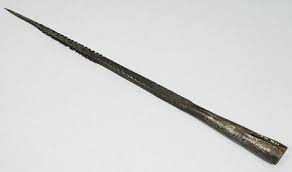
35. Literature(Abstract Noun) The interval between the birth of one child and that of another. এটা সন্তান হোৱাৰ পৰা আন এটা সন্তান হোৱালৈকে মাজৰ সময়খিনি
36. Literature(Abstract Noun) The water in which the boiled rice (prepared)is kept for a subsequent meal. পঁইতা ভাত তিয়াই থোৱা অৱশিষ্ট পানী ৷
37. Literature(Abstract Noun) short pieces of literary works like short story, one-act play etc. which can be read and appreciated usually in one sitting i.e. in a short span of time. মোটামোটি একেটা বৈঠকতে অৰ্থাত্ খৰকৈ পৰিপূৰ্ণ আস্বাদন ল’ব পৰা সৰু, চুটি সাহিত্য কৰ্ম, যেনেঃ চুটিগল্প, একাংকিকা আৰু লঘু ৰচনা৷
38. Literature(Material Noun-Neuter) A trap for catching birds and small animals. চৰাই বা সৰু জন্তু ধৰা ফান্দ ৷
Bangla: ফাঁদ, ফান্দcb syl
Higher Magnitude:
a. Material Noun-Neuter: trap, ফান্দ, गादबनाय, फान्दोसानाय, chedan...
39. Literature(Abstract Noun) The quantity or amount that can be held in the hand by extending all the five fingers. পাঁচোটা আঙুলি মেলি, হাতৰ ভিতৰত যিমান ধৰিব পাৰি সিমান বস্তুৰ পৰিমাণ ৷
40. Literature(Common Noun-Neuter) Any thing earned without much effort, insignificant thing অনায়াসে উপাৰ্জন কৰিব পৰা বস্তু, তুচ্ছ বা সামান্য বস্তু
41. Literature(Common Noun-Neuter) Creative writing valued for esthetic content. আমোদ দিব পৰা লেখা, হাস্য-ৰসাত্মক লেখা ৷
42. Literature(Verb-Trans.) to obtain unlawfully when there is a chance সুবিধা পালে লাভ কৰ
43. Literature(Verb-Trans.) to give up control , to give up hold. অনুশাসন ধিলাই দে।
44. Literature(Material Noun-Neuter) a place abounding with water lilies. বহুত ভেট ফুল থকা ঠাই।
45. Literature(Material Noun-Neuter) A room inside a boat, a portion of a boat between two cross beams. নাৱৰ খোটালী , নাৱৰ দুই পীৰিৰ ভিতৰৰ ঠাই
46. Literature(Verbal Noun) (in literature and music)the repeated use of the same word/word pattern/phrase as a rhetorical device that may emphasize something, bring comfort, suggest order, or add special meaning to a piece of literature/musical recital-oral or instrumental. Look at the following examples:(1) “Alone, alone, all all alone, Alone on a wide wide sea! (Coleridge) (2) By the twanging,
And the clanging,
How the danger ebbs and flows:
Yet the ear distinctly tells,
In the jangling,
And the wrangling,
How the danger sinks and swells,
By the sinking or the swelling in the anger of the bells
Of the bells
Of the bells, bells, bells,bells,
Bells, bells, bells
In the clamor and the clangor of the bells! (Edgar Allen Poe: \'Bells\') সাহিত্য(কবিতা, নাটক বা গদ্যৰ), সংগীত(গান, বাদ্য বাদন)আদিত ওচৰা-ওচৰিকৈ থকা শব্দৰ অলংকাৰপূৰ্ণ বা উদ্দেশ্যপূৰ্ণভাৱে বাৰম্বাৰ ব্যৱহাৰ৷ যেনে: ভূপেন হাজৰিকাৰ বৰদৈচিলা নে সৰুদৈচিলা গানটোত গ’ল আৰু হয় শব্দ দুটাৰ ব্যৱহাৰ চাওকঃ “মূৰৰ ফুলাম গামোচা খনি ক’ৰবাৰ শেণে আহি নিলেহি টানি/
গ’ল,গ’ল,গ’ল, এ গ’ল গ’ল বুলি মাথো চিঞঁৰিলে/তাকে দেখি শেণহঁতে ৰগৰ কৰিলে, অসমীয়া এইবোৰ গমি চাবৰ ব’হাগেই বতৰ কিজানি/ বোলো হয়, হয়, হয়, হয়, এ হয়নে? বোলো হয়, হয়, হয়, হয়”৷ আকৌ তেওঁৰে ’আৰু দিচাঙৰে মিঠা, মিঠা, মিঠা ঢৌটি’৷
47. Literature(Verb-Trans.) Putting something new in old text পুৰণি গাঁথনীত নতুনকৈ সুমুৱাই দিয়া কাৰ্য
48. Literature(Abstract Noun) poems connected with the countryside or country life. গৰখীয়া বা গ্ৰাম্য/চহা জীৱন সম্পৰ্কীয় কবিতা৷
49. Literature(Proper Noun-Neuter) a book by Kabin Phukan on the history of Assamese poetry. অসমীয়া কবিতাৰ ইতিহাস সম্পৰ্কীয় এখন মননশীল গৱেষণা গ্ৰন্থ৷ লিখকঃ কবীন ফুকন৷
50. Literature(Abstract Noun) a set of wise sayings on different aspects of life and livings by a legendary person called Dak. ডাক নামৰ ঐতিহাসিক, জ্ঞানী পুৰুষে জীৱন আৰু সংসাৰৰ বিভিন্ন দিশৰ বিষয়ে কৈ যোৱা এলানি ব্যৱহাৰিক জ্ঞানেৰে সমৃদ্ধ উপদেশবাণী৷
51. Literature(Proper Noun-Masculine) an Assamese poet just after the time of Sankardeva. His `Kankhowa` and `Ghunusa Kirtan` are two famous poems. ’কাণখোৱা’ আৰু ’ঘুনুচা কীৰ্তন’ কাব্যপুথিৰ ৰচক৷ এওঁ শ্ৰীমন্ত শংকৰদেৱৰ অলপ পাছৰ সময়ৰ বৈষ্ণৱ কবি৷
52. Literature(Proper Noun-Neuter) a collection of the Charyapads edited by Haraprashad Shastri. হৰপ্ৰসাদ শাস্ত্ৰীয়ে পুথিৰ আকাৰত ছপা কৰা চৰ্যাপদৰ এক সংকলন৷
53. Literature(Abstract Noun) The term ivory tower originates in the Biblical Song of Solomon (7:4) and was later used as an epithet for Mary. From the 19th century, it has been used to designate a world or atmosphere where intellectuals engage in pursuits that are disconnected from the practical concerns of everyday life. এনে এটা পৰিবেশ যত বুদ্ধিজীৱিসকলে বাস্তৱ জগতৰ পৰা বিছিন্ন হৈ অযথা বৌদ্ধিক কচৰৎ কৰি থাকে৷
54. Literature(Proper Noun-Neuter) (ca. 10th century) A Hindu religious text, considered as one of the 18 Upapuranas. The extant text contains 98 chapters with over 9000 stanzas and is the only work of the genre dedicated to the worship of the goddess Kali in her manifold forms such as Girija, Devi, Bhadrakali, and Mahamaya. This text describes in details about the rivers and mountains at Kamarupa tirtha and mentions about the temple of the goddess Kamakshya or Kamakshi (আনুমানিক ১০ম শতিকা) এখন হিন্দু ধাৰ্মিক গ্ৰন্থ৷ ইয়াক ১৮ খন উপপুৰাণৰ এখন বুলি গণ্য কৰা হয়৷ পুৰণি কাব্যখনত ৯৮টা পঠত ৯০০০টা পৰিচ্ছেদ আছে৷ কালী দেৱীৰ বিভিন্ন ৰূপ যেনে `গিৰিজা`, `দেৱী`, `ভদ্ৰকালী`, `মহামায়া` আদিৰ স্তুতি কৰা এইখন একমাত্ৰ কাব্যশৃঙ্খল৷ এই গ্ৰন্থত কামৰূপ ৰাজ্যৰ পৰ্বত-পাহাৰৰ বৰ্ণনাৰ উপৰিও `কামাখ্যা` বা `কামাখ্যী` দেৱীৰ মন্দিৰৰ উল্লেখ আছে়
55. Literature(Proper Noun-Feminine) A character of ‘Abhigyan Sakuntalam’Sakuntalam of famous sanskrit poet Kalidas মহাকবি কালিদাসৰ অভিজ্ঞানশকুন্তলম নাটকৰ মূল চৰিত্ৰ
56. Literature(Proper Noun-Masculine) A character of ‘Abhigyan Sakuntalam’Sakuntalam of famous sanskrit poet Kalidas. মহাকবি কালিদাসৰ অভিজ্ঞানশকুন্তলম নাটকৰ মূল পুৰুষ চৰিত্ৰ।
57. Literature(Proper Noun-Masculine) A supporting character of ‘Abhigyan Sakuntalam’ of famous sanskrit poet Kalidas মহাকবি কালিদাসৰ অভিজ্ঞানশকুন্তলম নাটকৰ পাৰ্শ নাৰী চৰিত্ৰ
58. Literature(Proper Noun-Masculine) A supporting male character of ‘Abhigyan Sakuntalam’ of famous sanskrit poet Kalidas. মহাকবি কালিদাসৰ `অভিজ্ঞান শকুন্তলম` নাটকৰ পাৰ্শ পুৰুষ চৰিত্ৰ।
59. Literature(Proper Noun-Masculine) A male character of “Ajamil Upakhyan” Upakhyan mentioned in Bhagawat ভাগৱতৰ ‘অজমিল উপাখ্যান’ ৰ পুৰুষ চৰিত্ৰ
60. Literature(Proper Adj.-Neuter) noting or pertaining to epic. মহাকাব্য সম্পৰ্কীয়৷
61. Literature(Common Noun-Common) One who wear white cloth বগা কাপোৰ পিন্ধোতা
62. LiteratureLanguage-Linguistics(Abstract Noun) Nineteenth letter of the list of Assamese consonants অসমীয়া ব্যঞ্জনবৰ্ণমালাৰ উনবিংশতিতম বৰ্ণ
63. Literature(Proper Noun-Neuter) A Sanskrit epic poem by the most celebrated Sanskrit poet Kalidasa. মহাকবি কালিদাসৰ দ্বাৰা ৰচিত মহান কাব্য৷
64. Literature(Proper Noun-Neuter) a poem in Sanskrit on the life of Nala, the king of Nishadha. Written by Sriharsha. শ্ৰীহৰ্ষৰ দ্বাৰা ৰচিত মহান কাব্য৷
65. Literature(Proper Noun-Neuter) (flourished 12th century), Indian author and epic poet whose Naiadhiyacarita, or Naiadha, is among the most popular mahakavyas in Sanskrit দ্বাদশ শতিকাৰ মহান সংস্কৃত কবি৷ শ্ৰীহৰ্ষৰ দ্বাৰা ৰচিত মহান কাব্য নৈষধ চৰিত৷
66. Literature(Proper Noun-Neuter) A lyric poem written by Kalidasa, considered to be one of the greatest Sanskrit poets. A poem of 111 stanzas, it is one of Kalidasa`s most famous works. The work is divided into two parts, Purvamegh and Uttaramegh. মহাকবি কালিদাসৰ দ্বাৰা ৰচিত মহান কাব্য৷
67. Literature(Proper Noun-Neuter) A Sanskrit epic poem by Kalidasa. It is widely regarded as one of Kalidasa`s finest works, a paradigmatic example of Kavya poetry. মহাকবি কালিদাসৰ দ্বাৰা ৰচিত মহান কাব্য৷
68. Literature(Abstract Noun) A historical play in Sanskrit by Vishakhadatta that narrates the ascent of the king Chandragupta Maurya to power in India. It is dated variously from the late 4th century to the 8th century. পৌৰাণিক সংস্কৃত নাটক৷ ৰচক- বিশাখদত্ত৷ বিষয়- চন্দ্ৰগুপ্ত মৌৰ্য্য৷
69. Literature(Proper Noun-Masculine) An Indian Sanskrit poet and playwright. Although Vishakhadatta furnishes the names of his father and grandfather as Maharaja Bhaskaradatta and Maharaja Vateshvaradatta in his political drama Mudrarak?asa, we know little else about him. only two of his plays, the Mudrarak?asa and the Devichandraguptam are known to us. পৌৰাণিক সংস্কৃত নাটক ৰচোতা- বিশাখদত্ত৷
70. Literature(Proper Noun-Masculine) A writer of 11th century. The Kathasaritsagar-century collection of Indian legends, fairy tales and folk tales as retold in Sanskrit by a Shaiva Brahmin named Somadeva. Nothing is known about the author other than that his father`s name was Ramadevabatta. এজন সাহিত্যিক৷ কথা-সৰিৎ-সাগৰৰ ৰচক৷ একাদশ শতিকাত সংগৃহীত পৌৰাণিক, আখ্যান, উপাখ্যান, সাধুকথা আদিৰ জনপ্ৰিয় সংকলন৷ সংকলক - সোমদেৱ নামৰ শৈৱপন্থী ব্ৰাহ্মণ এজন৷
71. Literature(Proper Noun-Neuter) A Sanskrit play in six acts written by the ancient Indian poet Bhasa. It is probably one of the best known of Bhasa`s works. পৌৰাণিক সংস্কৃত নাটক৷ লেখক ভাস৷ তেওঁ তেৰখন নাটক ৰচনা কৰিছিল৷
72. Literature(Proper Noun-Masculine) The earliest known Sanskrit dramatist, Bhasa is believed to have lived sometime during the 3rd century AD. Thirteen of his plays were rediscovered in 1912 by an Indian scholar, Mahamahopadhyaya Ganapati Sastrigal. Most of these surviving works are romances taken from the famous epics the Mahabharata and the Ramayana, although two of Bhasa`s plays do boast original plots: Avimaraka and Charudatta which became the basis for a later play, The Little Clay Cart, possibly written by the legendary King Shudraka. পৌৰাণিক সংস্কৃত নাটক ৰচোতা ভাস৷ তেওঁ তেৰখন নাটক ৰচনা কৰিছিল৷
73. Literature(Proper Noun-Neuter) A Sanskrit play in six acts written by the ancient Indian poet Bhasa. It is probably one of the best known of Bhasa`s works. পৌৰাণিক সংস্কৃত নাটক৷ লেখক ভাস৷ তেওঁ তেৰখন নাটক ৰচনা কৰিছিল৷
74. Literature(Proper Noun-Neuter) A Sanskrit play in six acts written by the ancient Indian poet Bhasa. It is probably the best known of Bhasa`s works. The plot of the drama is drawn from the romantic narratives about the Vatsa king Udayana and Vasavadatta, the daughter of Pradyota, the ruler of Avanti পৌৰাণিক সংস্কৃত নাটক৷ লেখক ভাস৷ তেওঁ তেৰখন নাটক ৰচনা কৰিছিল৷
75. Literature(Proper Noun-Neuter) A drama written by Srimanta Sankardev. It is based on Ramayan.
শ্ৰীমন্ত শংকৰদেৱৰ দ্বাৰা ৰচিত এখন নাটক৷ বোধহয় এইখন তেওঁৰ দ্বাৰা ৰচিত শেষৰখন নাট৷
76. Literature(Proper Noun-Neuter) It is a Mukhya (primary, principal) Upanishad, and is known in two recensions, called Kanva (VSK) and Madhyandina (VSM). The Upanishad is a brief poem, consisting of 17 or 18 verses, depending on the recension.
ঈশ উপনিষদ হল অন্যতম মুখ্য উপনিষদ্৷ এই উপনিষদটি হল বেদৰ সংহিতাৰ শেষ অধ্যায়৷ ঈশোপনিষদৰ বাহিৰে বাকী সকলো উপনিষদ বেদৰ ব্ৰাহ্মণ বা অাৰণ্যকৰ অংশ৷ ইয়াত ১৮টা শ্লোক আছে৷
77. Literature(Abstract Noun) A class of old Sanskit poem coming through generation oraly. উদ্ভট কবিতা সংস্কৃত সাহিত্য ভাণ্ডাৰৰ অপূৰ্ব এটি ৰত্ন ৷ ই অতি প্ৰাচীন কালৰ পৰাই আৰ্যসকলৰ শ্ৰুতি পৰম্পৰাত চলি আহিছে ৷ কালিদাস, ভৱভূতি, মাঘ, ভাৰৱি, শ্ৰীহৰ্ষ, ভত্তৃহৰি প্ৰভৃতি খ্যাত নামা সকলৰ যিখন হৃদয়ৰ পৰা অপূৰ্ব মহাকাব্য, খণ্ডকাব্য আৰু নাটক প্ৰভৃতি উত্থিত হৈ পৃথিৱীৰ সমস্ত সভ্য জাতিৰ অন্তঃকৰণ অভূতপূৰ্ব আনন্দৰসৰ দ্বাৰা উচ্চাসিত কৰি ৰাখিছে, উদ্ভট শ্লোকো সেই সমুদায় বা তদ্ৰুপ সহৃদয সকলৰ হৃদয়কেন্দ্ৰিক সাময়িক চিন্তাবোৰৰ সুস্বাদু সৌৰভময় ফলস্বৰুপ ৷
78. Literature(Proper Noun-Masculine) Lu Xun , formerly also romanized Lu Hsün , was the pen name of Zhou Shuren (25 September 1881 – 19 October 1936), a leading figure of modern Chinese literature. Writing in Vernacular Chinese as well as Classical Chinese, Lu Xun was a short story writer, editor, translator, literary critic, essayist, and poet. In the 1930s he became the titular head of the League of Left-Wing Writers in Shanghai.
লু-চুন (১৮৮১ - ১৯৩৬) আধুনিক চীনা ভাষাৰ কবি, গল্প লেখক, প্ৰৱন্ধকাৰ, সমালোচক৷ বিশিষ্ঠ চিন্তাবিদজনে পৃথিৱীৰ বিভিন্ন লেখক, আনকি অসমীয়া লেখক সকলকো অনুপ্ৰানীত কৰি আহিছে৷
79. Literature(Abstract Noun) The term flash fiction has a number of lexical variants, including micro-fiction, sudden fiction, postcard fiction, short short and short short story. ... The term micro-fiction is often reserved for stories which are less than 300 words long.
তিনশ শব্দৰ ভিতৰত লিখা, সাহিত্যৰ এক নৱতম ধাৰা৷
Assamese: অণুগল্প, পষ্টকাৰ্ড গল্প
80. Literature(Abstract Noun) a literary composition, in which human folly and vice are ridiculed or scorned
এক খুহুঁতীয়া সাহিত্যিক ৰচনা, যাৰ জৰিয়তে মানুহৰ মূৰ্খামি আৰু বদ্ অভ্যাস সমূহক ব্যঙ্গ কৰা হয়৷
81. Literature(Abstract Noun) Vernacular words distorted from original language like Sanskrit. অসমীয়া ভাষাৰ উচ্চাৰণ অনুসৰি লিখা সংস্কৃতমূলৰ শব্দ। যেনেঃ-
স্নেহ > চেনেহ
স্বৰ্ণ > সোণ
হস্ত > হাত
কৰ্ণ > কাণ ইত্যাদি।
82. Literature(Verb-Trans.) To give human characteristics to an object, a non-living thing.
কোনো প্ৰাণহীন বস্তুক ব্যক্তিৰূপে প্ৰকাশ কৰা৷
83. Literature(Proper Adj.-Neuter) Having slightly green colour
সেউজীয়া বৰণ
84. Literature(Verbal Noun) The process of giving human characteristics to a non-living thing.
ব্যক্তিত্ব প্ৰদান কৰা কাৰ্য
85. Literature(Abstract Noun) A series of poems
এলানী কবিতা
86. Literature(Material Noun-Neuter) An ugly or indecent dress. Here `ku` means bad and `bekh` means dress
দেখাত বেয়া সাজপাৰ৷ ইয়াত `কু` ৰ অৰ্থ বেয়া আৰু ` বেশ` ৰ অৰ্থ ৰূপ বা সাজপাৰ৷
87. Literature(Verbal Noun) Death on the cross
ক্ৰছবিদ্ধ হৈ ঘটা মৃত্যু
88. Literature(Proper Adj.-Common &/or Masculine) Burning slowly internally
ভিতৰে ভিতৰে জ্বলি গৰম হৈ থকা
89. Literature(Verbal Noun) marked words with figures to indicate their proper order in the writing
লেখাত আগৰ কথা পাচলৈ আৰু পাচৰ কথা আগলৈ নিবৰ কাৰণে `২`,`১` এইৰূপে চিন লগোৱা
90. Literature(Adjective Adj.) Realated to a house
ঘৰৰ লগত সম্পৰ্কিত
91. Literature(Adjective Adj.) Always happy
সদায় আনন্দত থকা৷
92. Literature(Preffix) A negative prefix in Assamese
শব্দৰ আগত থাকি অভাৱ বা হীনতা বুজাবলৈ৷ যেনে, নিৰ্মল
93. Literature(Proper Noun-Neuter) a person who has recently started an activity
যি কোনো কাম বা দক্ষতা নতুনকৈ শিকিবলৈ আৰম্ভ কৰিছে
94. Literature(Common Noun-Neuter) a person who uses the internet a lot
95. Literature(Common Noun-Neuter) an identifying mark at the hinder part of the cow
একে খুঁটিৰ গৰুৰ চিন ৰাখিবৰ বাবে ছিলিম গৰম কৰি গৰুৰ টিকাত মৰা চাব
96. Literature(Abstract Noun)
A piece of writing which express emotions , ideas , experience, things of the world in a few lines which can be found in rhythmical order.
কেইটামান শাৰীৰে এক সুবিকশিত গীতিময় লিখনী য`ত কল্পনা , অনুভৱ , অভিজ্ঞতা অথবা পৃথিৱীত থকা যিকোনো বস্তুৰ বিষয়ে প্ৰকাশ পায়৷
97. Literature(Common Noun-Feminine) a girl or woman who behaves in a way that is considered shocking or morally wrong
চঞ্চল স্বভাৱৰ মহিলা
98. Literature(Abstract Noun) a long article or a short book on a specific subject কোনো এক নিৰ্দ্দিষ্ট বিষয় সম্বলিত এক দীঘলীয়া প্ৰৱন্ধ বা চুটি পুথি
99. Literature(Abstract Noun) a nonsense verse or composition অৰ্থ নথকা কবিতা বা ৰচনা
100. Literature(Abstract Noun) A way to classify literature into categories of similar philosophical, topical, or aesthetic features, as opposed to divisions by genre or period.
101. Literature(Abstract Noun) A 19th-century philosophical and literary movement in the United States. It emphasized the inherent goodness of people and nature, advocating self-reliance, individual intuition, and a connection with the divine without the need for organized religion. Key figures include Ralph Waldo Emerson and Henry David Thoreau.

